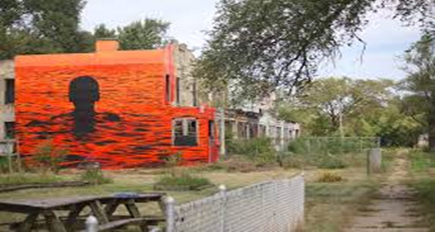By Don Valentine
The first World War ended in 1918, and the soldiers returned to medals and parades. The Black veterans returned to an immediate reality check. In Europe they were treated with respect in courtesy; however, at home they were treated to the same old Negro baggage. It was an unfair dichotomy to risk your life for your country and then be disrespected for being Black.
A scant few months after the war, this caldron of racial discontent boiled over and created the Red Summer.History.com wrote, “On July 27, 1919, an African American teenager drowned in Lake Michigan after violating the unofficial segregation of Chicago’s beaches and being stoned by a group of White youths. His death, and the police’s refusal to arrest the white man whom eyewitnesses identified as causing it, sparked a week of rioting between gangs of Black and White Chicagoans, concentrated on the South Side neighborhood surrounding the stockyards. When the riots ended on August 3, 15 White and 23 Black people had been killed and more than 500 people injured; an additional 1,000 Black families had lost their homes when they were torched by rioters.”
These elements may be a familiar refrain: the burning of “Black Wall Street,” Atlanta race riots of 1906, Watts riots of 1965 (over brutal police beating), Emmett Till, Rodney King, George Floyd and Trayvon Martin to cite a few. Mr. Twain wrote, “History doesn’t repeat itself, but it often rhymes.”
The White veterans returned home to find that their jobs in factories, warehouses and mills had been filled by newly arrived Southern Black people or immigrants. That was the fuel to stoke their angst for the “Red Summer.” The racial prejudice of the post Civil war era was exacerbated by the White unemployment insecurities.
Time Magazine commented on the speech that former Mayor Chicago, Lori Lightfoot gave on the 100th anniversary: “The events of July 27-Aug. 3, 1919, reached far beyond that city and those days. Rather, they marked the peak of a wave of anti-black violence that roiled the United States in 1919. The season would come to be known as the “Red Summer,” a name coined by NAACP field secretary James Weldon Johnson to acknowledge the blood that was shed. ‘The story of Red Summer is a story of a nation fraught from the clash between hope and threat, between the tension of new dreams encountering entangled fears — all rising until it finally exploded,’ Lightfoot said…”
White terrorists took advantage of this chaos to pursue their Jim Crow agendas. History.com cites, “the white supremacist Ku Klux Klan organization revived its violent activities in the South, including 64 lynchings in 1918 and 83 in 1919. In the summer of 1919, race riots would break out in Washington, D.C.; Knoxville, Tennessee; Longview, Texas; Phillips County, Arkansas; Omaha, Nebraska…”
Bernard Shaw profoundly wrote, “If history repeats itself, and the unexpected always happens, how incapable must Man be of learning from experience.


